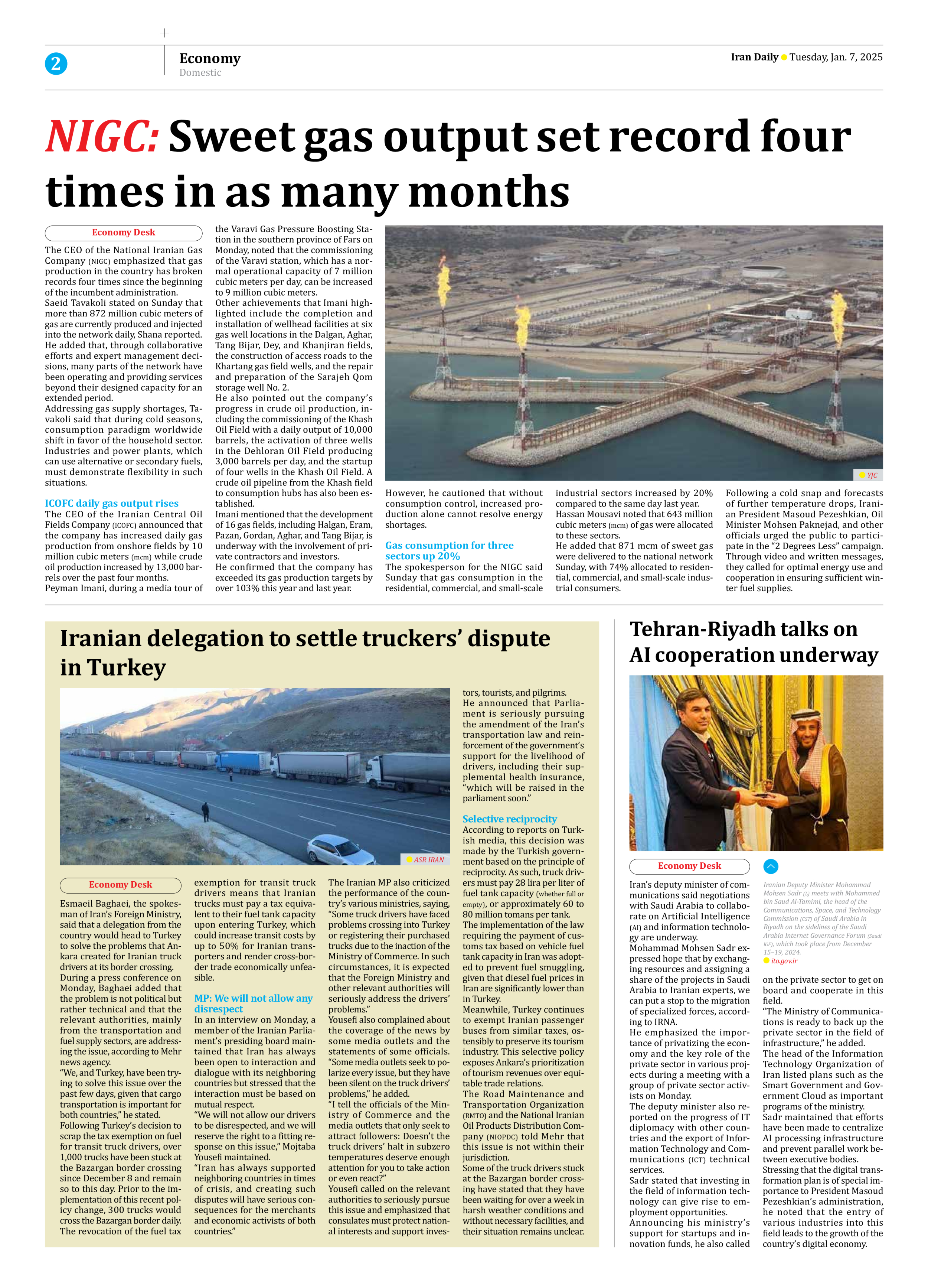
Iranian delegation to settle truckers’ dispute in Turkey
Esmaeil Baghaei, the spokesman of Iran’s Foreign Ministry, said that a delegation from the country would head to Turkey to solve the problems that Ankara created for Iranian truck drivers at its border crossing.
During a press conference on Monday, Baghaei added that the problem is not political but rather technical and that the relevant authorities, mainly from the transportation and fuel supply sectors, are addressing the issue, according to Mehr news agency.
“We, and Turkey, have been trying to solve this issue over the past few days, given that cargo transportation is important for both countries,” he stated.
Following Turkey’s decision to scrap the tax exemption on fuel for transit truck drivers, over 1,000 trucks have been stuck at the Bazargan border crossing since December 8 and remain so to this day. Prior to the implementation of this recent policy change, 300 trucks would cross the Bazargan border daily.
The revocation of the fuel tax exemption for transit truck drivers means that Iranian trucks must pay a tax equivalent to their fuel tank capacity upon entering Turkey, which could increase transit costs by up to 50% for Iranian transporters and render cross-border trade economically unfeasible.
MP: We will not allow any disrespect
In an interview on Monday, a member of the Iranian Parliament’s presiding board maintained that Iran has always been open to interaction and dialogue with its neighboring countries but stressed that the interaction must be based on mutual respect.
“We will not allow our drivers to be disrespected, and we will reserve the right to a fitting response on this issue,” Mojtaba Yousefi maintained.
“Iran has always supported neighboring countries in times of crisis, and creating such disputes will have serious consequences for the merchants and economic activists of both countries.”
The Iranian MP also criticized the performance of the country’s various ministries, saying, “Some truck drivers have faced problems crossing into Turkey or registering their purchased trucks due to the inaction of the Ministry of Commerce. In such circumstances, it is expected that the Foreign Ministry and other relevant authorities will seriously address the drivers’ problems.”
Yousefi also complained about the coverage of the news by some media outlets and the statements of some officials. “Some media outlets seek to polarize every issue, but they have been silent on the truck drivers’ problems,” he added.
“I tell the officials of the Ministry of Commerce and the media outlets that only seek to attract followers: Doesn’t the truck drivers’ halt in subzero temperatures deserve enough attention for you to take action or even react?”
Yousefi called on the relevant authorities to seriously pursue this issue and emphasized that consulates must protect national interests and support investors, tourists, and pilgrims.
He announced that Parliament is seriously pursuing the amendment of the Iran’s transportation law and reinforcement of the government’s support for the livelihood of drivers, including their supplemental health insurance, “which will be raised in the parliament soon.”
Selective reciprocity
According to reports on Turkish media, this decision was made by the Turkish government based on the principle of reciprocity. As such, truck drivers must pay 28 lira per liter of fuel tank capacity (whether full or empty), or approximately 60 to 80 million tomans per tank.
The implementation of the law requiring the payment of customs tax based on vehicle fuel tank capacity in Iran was adopted to prevent fuel smuggling, given that diesel fuel prices in Iran are significantly lower than in Turkey.
Meanwhile, Turkey continues to exempt Iranian passenger buses from similar taxes, ostensibly to preserve its tourism industry. This selective policy exposes Ankara’s prioritization of tourism revenues over equitable trade relations.
The Road Maintenance and Transportation Organization (RMTO) and the National Iranian Oil Products Distribution Company (NIOPDC) told Mehr that this issue is not within their jurisdiction.
Some of the truck drivers stuck at the Bazargan border crossing have stated that they have been waiting for over a week in harsh weather conditions and without necessary facilities, and their situation remains unclear.







